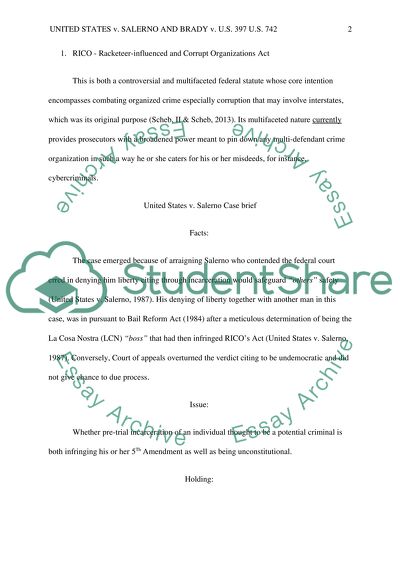United States v. Salerno and Brady v. U.S. 397 U.S. 742 Case Study. Retrieved from https://studentshare.org/law/1663509-united-states-v-salerno-and-brady-v-us-397-us-742
United States V. Salerno and Brady V. U.S. 397 U.S. 742 Case Study. https://studentshare.org/law/1663509-united-states-v-salerno-and-brady-v-us-397-us-742.


